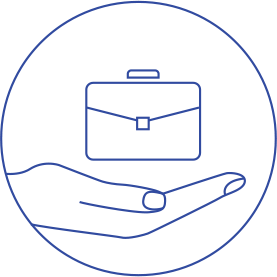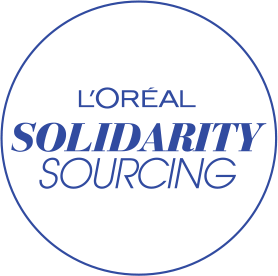4.3.3.5. Measures taken in favour of employees of the Group’s suppliers in the context of their working conditions
L’Oréal seeks out suppliers that share its ethical commitments, namely with regard to Human Rights and working conditions of their employees.
L’Oréal’s commitments are communicated to all suppliers via the general terms of purchase.
Suppliers identified in the Group’s risk mapping must sign the Ethical Commitment Letter. Some may be audited. The details and implementation of this Buy & Care programme are described in L’Oréal’s Vigilance Plan (see section 3.4.), and in section 4.3.1.2.1.
L’Oréal wants to carry this goal beyond the Group. This is why the L’Oréal for the Future programme includes a new demanding commitment ensuring that all employees of strategic suppliers are paid at least the level of a “living” wage. Calculated by region and aligned with the best local practices, these new standards must allow employees to cover their basic needs and those of their family for decent housing, food, education and any other needs. In many countries, this “living” wage goes beyond the legal minimums.
4.3.3.6. Measures taken in favour of communities
As part of the L’Oréal for the Future programme, the Group reiterated its commitment to help 100,000 more beneficiaries to access employment by 2030.

In 2022, L’Oréal helped 17,827 additional people from disadvantaged communities gain access to employment.

In 2022, as part of the Solidarity Sourcing programme, 85,544 economically and socially vulnerable people gained access to lasting employment, i.e. 4,406 more people than in 2020.
| 2030 targets | 2022 Results |
|---|---|
| 2030 targetsBy 2030, we will have helped 100,000 people from disadvantaged communities gain access to employment: | 2022 Results In 2022, 11,836 additional people from disadvantaged communities gained access to employment. |
| 2030 targets ● Solidarity Sourcing; |
2022 Results 85,544 people accessed work through the Solidarity Sourcing programme, 4,406 more people than in 2020. |
| 2030 targets ● Beauty for a Better life, vocational training; |
2022 Results 7,430 people from vulnerable environments were trained in beauty professions. |
This commitment is supported by the Solidarity Sourcing and Beauty for a Better Life (BFBL) programmes, which take different approaches. BFBL provides vocational trainging on beauty skills for people in vulnerable situations. As this training is professional, L’Oréal believes that it promotes and contributes to access to employment. Solidarity Sourcing is a programme that encourages L’Oréal suppliers to directly employ workers from socially or economically vulnerable communities.
Measures taken in favour of communities
Throughout the production chain: The environmental risks related to L’Oréal’s sites and activities may potentially have an impact on the local communities in which the Group operates. In this area, L’Oréal has a long-standing commitment to managing risks and reducing its environmental footprint, and is implementing an ambitious policy described in detail in section 4.3.1.
A responsible approach to property assets: For prospective acquisitions of premises or building land, L’Oréal ensures that the former owners and/or occupiers have not been unfairly removed and/or that any expropriation by the authorities was conducted in accordance with international law, namely with the free agreement and compensation of the previous owners and/or occupants.
Responsible sourcing: See section 4.3.1.3.
Solidarity Sourcing: using the Group’s purchasing power to serve social inclusion: Through the Solidarity Sourcing programme, launched in 2010, L’Oréal supports numerous local projects in favour of local communities. It aims to use the Group’s purchasing power to serve social inclusion. A proportion of its purchases are dedicated to suppliers providing access to work and a sustainable income for people who are generally excluded from the labour market, economically vulnerable communities, including small businesses and those that truggle to access major contractors. The programme concerns all the Group’s suppliers and values their commitment to DE&I issues. It involves, for example, fair trade producers, companies which employ people with disabilities, social inclusion companies, or companies owned by minorities(1), where national legislation permits. Solidarity Sourcing offers a novel sourcing approach due to its global, holistic nature. Rolled out in all zones, it concerns all fields of purchasing(2). Its ambition is to associate economic
(1) Through Solidarity Sourcing, L’Oréal rewards suppliers who provide jobs in which minorities, as defined by the U.S. Civil Rights Act and the Equal Employment Opportunity Commission (EEOC) laws, are underrepresented. See the database https://datausa.io/. In line with the Broad-Based Black Economic Empowerment (B-BBEE) policy in SouthAfrica and in the context of Solidarity Sourcing, L’Oréal works with suppliers that are accredited at B-BBEE levels 1 to 4.
(2) It concerns all areas of purchases (raw materials, packaging, subcontracting, logistics, promotional items and point-of-sale advertising, services etc.)
